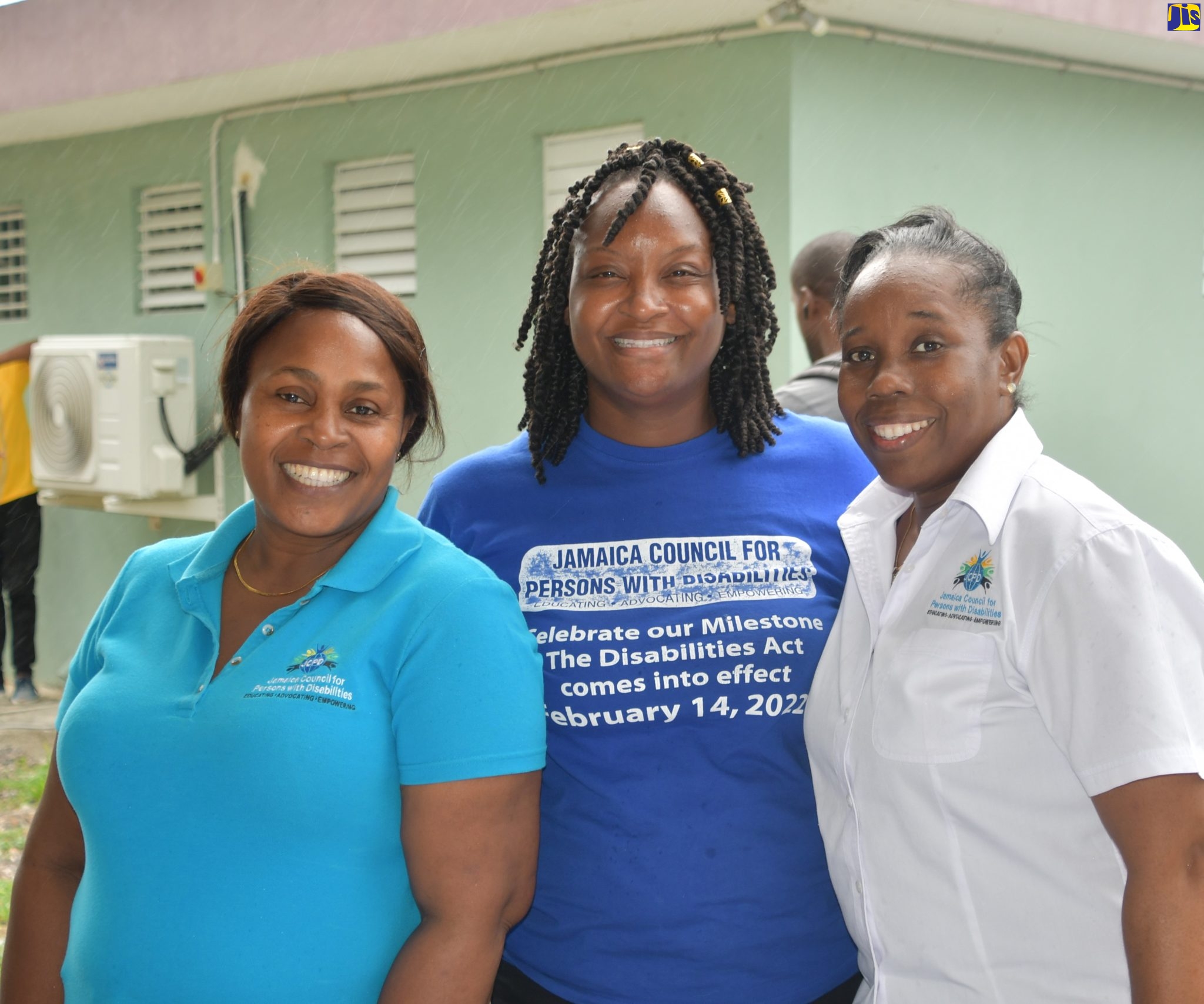State Agency Partnerships Deemed Key to Addressing Needs of Persons with Disabilities
By: , November 8, 2022The Full Story
The Jamaica Council for Persons with Disabilities (JCPD) has underscored the need for greater partnerships between State agencies to better serve individuals with physical and mental challenges, especially children.
Social Worker with the Western Region, Shereena Thomas Shaw, emphasised this point while speaking during a recent information fair, jointly hosted by the JCPD and the Sam Sharpe Diagnostic and Early Intervention Centre in Granville, St James.
Mrs. Thomas Shaw indicated that many parents of children with disabilities are unaware of the services the Government provides for them.
Consequently, she said there is need to get the message out, “so that when they see disabled persons, they can make the referral to us, so that we can provide different services for those persons”.
This was endorsed by Manager for the Sam Sharpe Diagnostic and Early Intervention Centre, Tracey Ann Pinnock, who pointed out that nearly 40 per cent of children deemed at-risk due to learning disabilities do not have the benefit of being enrolled in school to get an education.
Referencing data from assessments conducted by the Centre, Mrs. Pinnock said between January and June this year, of 163 children assessed, 64 were not in school and were determined to be “on the severe end of the Autism Spectrum or are severely intellectually disabled”.
Of those who were in school, many were awaiting further assessments to be accommodated for exams, in particular the Primary Exit Profile (PEP) she noted.
Mrs. Pinnock further indicated that, in some instances, there were children with disabilities in schools that were “just holding them”, as the institutions are not equipped to cater to youngsters with special needs.
The Centre commenced operations in 2019, specifically to serve western Jamaica.
While there are private entities that conduct basic assessment at fees ranging from $20,000 to $60,000, there’s no charge at the Centre.
The children seen are either non- or minimally verbal, as they are moderately or severely autistic and require specialised education.
“It’s challenging for them to cope in a regular setting, and so they need to be in a segregated school,” Mrs. Pinnock said.
She further noted that there are children “who have the temperament and the ability to function in the regular school, but not without support”.
“Their processing speed is very slow, through no fault of theirs. So they will need extra time in exams, for instance, in order to realise their full potential,” Mrs. Pinnock said.
While the centre caters to many children who are non-verbal, it also assesses children with other disabilities. These youngsters are, however, unable to access the Centre’s services for varying reasons.
Mrs. Pinnock cites the need for public education and, in that regard, the Centre partnered with JCPD to host the information fair.
Among the participating stakeholders were agencies of the Ministry of Labour and Social Security, including the Early Stimulation Programme and Programme of Advancement Through Health and Education (PATH).
Also participating was Tax Administration of Jamaica (TAJ), which assisted with Tax Registration Numbers (TRNs), which are now required for all government services provided.
Mrs. Thomas Shaw said the JCPD caters to adults and children affected by commonly known disabilities. These include Downs syndrome, autism, speech impairment, and mental illness.
She expressed satisfaction with the participants’ response to the fair, noting that “it [was] very good”.


